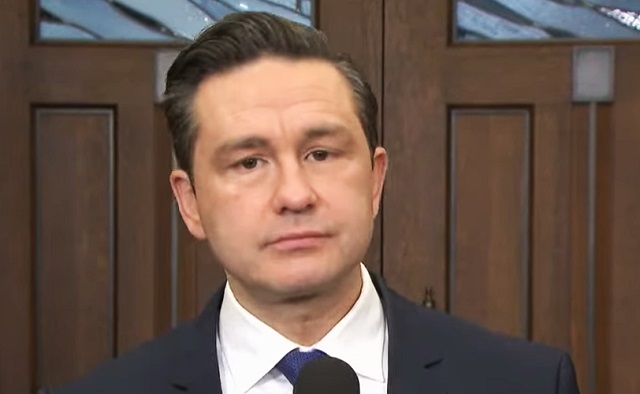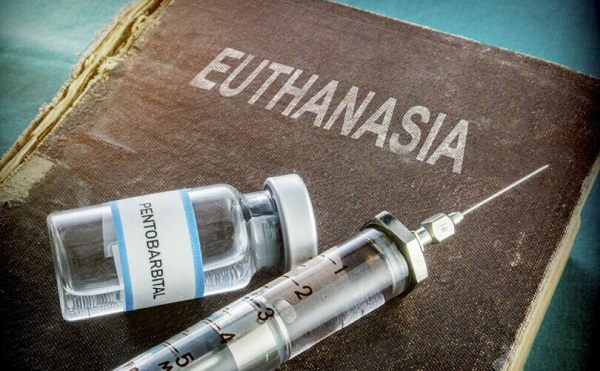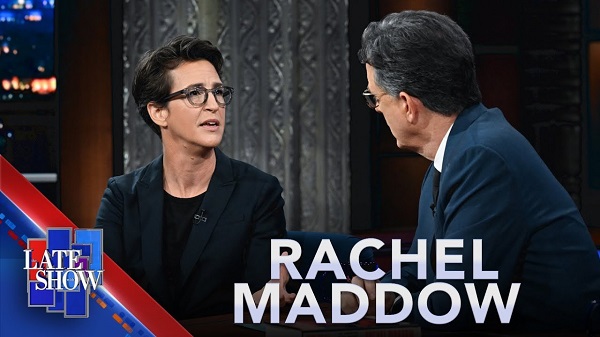National
Poilievre urges NDP leader Singh to pull support from Trudeau, force fall election

From LifeSiteNews
The leader of Canada’s Conservative Party, Pierre Poilievre, has asked the head of the New Democratic Party (NDP) Jagmeet Singh to pull his support for Prime Minister Justin Trudeau’s Liberals to trigger a fall election, as Canadians “can’t afford or even endure another year of this costly coalition.”
The letter, released on X Thursday by Poilievre, states that “Canadians can’t afford or even endure another year of this costly coalition.”
Sellout @theJagmeetSingh signed on with Trudeau to secure his pension.
Now you’re stuck paying the bill, with higher taxes, double the housing costs, and crime and chaos.
Sign to tell #SelloutSingh to vote down Trudeau and give Canadians the carbon tax election they want:… pic.twitter.com/fxcU7svlp9
— Pierre Poilievre (@PierrePoilievre) August 29, 2024
“No one voted for you to keep Trudeau in power,” Poilievre wrote, referencing Singh’s informal coalition with the Trudeau government that began last year, in which the NDP leader agreed to keep the Liberals in power until the next election is mandated by law in 2025. “You do not have a mandate to drag out his government another year.”
Poilievre called upon Singh to pull his support for Trudeau, so that Canadians can soon go to the polls in a general election.
“Mr. Singh, I know that you are eager to avoid an election so that you can qualify for your $2.2 million taxpayer-funded pension in February, but it’s time for you to put the people before your pension,” he wrote.
“Pull out of the costly coalition and vote non-confidence in the government this September to trigger a carbon tax election in October of THIS YEAR. Or you will forever be known as ‘Sellout Singh.’”
As reported by LifeSiteNews, the Trudeau Liberals are looking to delay the 2025 federal election by a few extra days in what many see as a stunt to try and secure pensions for MPs who are projected to lose their seats. Approximately 80 MPs would qualify for their pensions should they sit as MPs until at least October 27, 2025, which is the newly proposed election date. The election date as it stands now is set to happen on October 20, 2025.
House leader for the NDP, Peter Julian, in reply to Poilievre’s request to Singh, noted that “leaving the deal is always on the table for Jagmeet Singh.”
As for Poilievre, he called out the fact that Singh earlier this year “supported Trudeau’s decision to hike his carbon tax by 23 percent, as part of his plan to hike the tax by 300% by 2030.”
“You helped Trudeau pass his budget that poured $60 billion of wasteful spending onto the inflationary fire,” he noted.
LifeSiteNews, in a recent opinion piece by this writer, observed that most of the recent polling shows that if a federal election were held today, “Pierre Poilievre’s Conservative Party would not only mop the floor of the House of Commons of most Liberal MPs but wash the windows of the house on Parliament Hill as well with a tint of conservative blue.”
“Canada is being held hostage by a pro-abortion, anti-life socialist party (Singh’s NDP) that currently represents only seven percent of the electable seats in the House of Commons, a surprising fact and a sobering reminder of how the parliamentarian process that governs the nation is flawed in many ways,” reads the commentary piece.
As for Singh, he recently said his support for the Trudeau government, which is keeping the Liberals in power, would crumble unless the prime minister introduced pharmacare legislation before March.
Alberta
Alberta government announces review of Trudeau’s euthanasia regime

From LifeSiteNews
Alberta announced it ‘is reviewing how MAID is regulated to ensure there is a consistent process as well as oversight that protects vulnerable Albertans, specifically those living with disabilities or suffering from mental health challenges.’
The Conservative provincial government of Alberta is pushing back against the Canadian federal government’s continued desire to expand euthanasia in the nation, saying it will launch a review of the legislation and policies surrounding the grim practice, including a period of public engagement.
The United Conservative Party (UCP) government under Premier Danielle Smith in a press release said the province needs to make sure that robust safeguards and procedures are in place to protect vulnerable people from being coerced into getting euthanatized under the MAiD (Medical Assistance in Dying) program.
“Alberta’s government is reviewing how MAID is regulated to ensure there is a consistent process as well as oversight that protects vulnerable Albertans, specifically those living with disabilities or suffering from mental health challenges,” said the government Monday.
The government said a online survey regarding MAiD open to all Albertans who have opinions about the deadly practice will be available until December 20.
“We recognize that medical assistance in dying is a very complex and often personal issue and is an important, sensitive and emotional matter for patients and their families,” said Alberta’s Minister of Justice and Attorney General Mickey Amery.
Amery said it is important to ensure this process has the “necessary supports to protect the most vulnerable.”
The government said that it will also be engaging with academics, medical associations, public bodies, as well as religious organizations and “regulatory bodies, advocacy groups” regarding MAiD
The government said all information gathered through this consultation will “help inform the Alberta government’s planning and policy decision making, including potential legislative changes regarding MAID in Alberta.”
When it comes to MAiD, Prime Minister Justin Trudeau’s Liberal government sought to expand it from the chronically and terminally ill to those suffering solely from mental illness.
However, in February, after pushback from pro-life, medical, and mental health groups as well as most of Canada’s provinces, the federal government delayed the mental illness expansion until 2027.
Alberta’s Minister of Mental Health and Addiction Dan Williams said that the UCP government has been “clear” that it does not “support the provision of medically assisted suicide for vulnerable Albertans facing mental illness as their primary purpose for seeking their own death.”
“Instead, our goal is to build a continuum of care where vulnerable Albertans can live in long-term health and fulfilment. We look forward to the feedback of Albertans as we proceed with this important issue,” he noted.
The Alberta government said that as MAiD is “federally legislated and regulated” it is main job will be to try and make sure that it protects “vulnerable individuals” as much as possible.
Alberta’s Minister of Health Adriana LaGrange reaffirmed that the Alberta government “does not support expanding MAID eligibility to include those facing depression or mental illness and continues to call on the federal government to end this policy altogether.”
The number of Canadians killed by lethal injection under the nation’s MAiD program since 2016 stands at close to 65,000, with an estimated 16,000 deaths in 2023 alone. Many fear that because the official statistics are manipulated the number may be even higher.
To combat Canadians being coerced into MAiD, which LifeSiteNews has covered, the combat pro-life Delta Hospice Society (DHS) is offering a free “Do Not Euthanize Defense Kit” to help vulnerable people “protect themselves” from any healthcare workers who might push euthanasia on the defenseless.
Bruce Dowbiggin
The Pathetic, Predictable Demise of Echo Journalism

It can be safely said that the 2024 U.S. presidential election couldn’t have gone much worse for legacy media in that country. Their biases, conceits and outright falsehoods throughout the arduous years-long slog toward Nov. 5 were exposed that night. Resulting in the simultaneous disaster (for them) of Donald Trump winning a thunderous re-election and their predictive polling being shown to be Democratic propaganda.
Only a handful of non-establishment pollsters (Rasmussen, AtlasIntel) got Trump’s electoral college and overall vote correct. Example: One poll by Ann Selzer in Iowa—a highly-rated pollster with a supposedly strong record—showed a huge swing towards Harris in the final week of the election race, putting her three points up over Trump. He ended up winning Iowa by 13.2 points (Selzer now says she’s retiring.)
Throughout, these experts seemed incapable of finding half the voter pool. By putting their thumb on the scale during debates, the representatives of the so-called Tiffany networks and newspapers signalled abdication of their professional code. Their reliance on scandal-sheet stories was particularly glaring.
Just a few lowlights: “the brouhaha over a shock comedian at a Trump rally calling Puerto Rico “a floating island of garbage”. Unhinged outgoing POTUS Biden then called GOP voters “garbage”. So Trump made an appearance as a garbage man, to the snarky disapproval of CBS News chief anchor Nora O’Donnell.

Then there was Whoopi Goldberg on The View predicting Trump will “break up interracial marriages and redistribute the white spouses: “He’s going to deport and you, put the white guy with someone else… The man is out there!” Media ran with this one, too.
Worse, disinformation and lying reached such a proportion that Team Trump turned its campaign away from the networks and legacy papers down the stretch, creating a new information pathway of podcasts and social media sites (such as Joe Rogan, Theo Von and Adin Ross) that promise to be the preferred route for future candidates looking for non-traditional voters. A few prominent media owners sought to save themselves by refusing to endorse a presidential candidate, but the resulting tantrum by their Kamala-loving staff negated the effort.
In the past, poor performances by the Media Party might be dismissed or ignored. But the cataclysmic ratings drops for CNN and MSNBC paired with collapse in sales for blue-blood rags such as the New York Times, Washington Post and L.A. Times spoke to the public’s disgust with people they’ve always trusted to play it straight.
(Now Comcast has announced it’s spinning off MSNBC and its news bundle to save their profitable businesses. Staff members in these places are now panicking. As such the new administration promises to be indifferent to the former media powers-that-be as Trump mounts radical plans to recast the U.S. government. )
As noted here the disgraceful exercise in journalism was cheered on by their compatriots here in Canada. “In the hermetically sealed media world of Canada, natives take their cues from CNN and MSNBC talking points both of which employ Canadians in highly visible roles. (Here’s expat Ali Velshi famously describing on NBC that the 2020 George Floyd riots that burned for weeks— destroying billions in damages while resulting in multipole deaths— as “generally peaceful”.)
The narratives of Russiagate, drinking bleach, “fine people” to Hunter Biden’s laptop— long ago debunked down south— are still approved wisdom in Canada’s chattering class. Especially if America’s conflagration election can be used to demonstrate the good sense and judgment of Canada’s managerial and media class.
The clincher for star-struck Canadians was the overwhelming Kamala love from the Hollywood crowd. Virtually every high-profile actor/ singer/ writer embraced the woman who was parachuted into the nomination in a coup— even as the same glitterati raved about anti-democratic Trump. From Beyoncé to Bilie Eilish to Bruce Springsteen, their support was been a winner in Canada’s fangirl/ fanboy culture.”
Talk about backing a loser. Which leaves us asking what to expect from formerly respected media in the upcoming (it will come, won’t it?) defenestration of Justin Trudeau and Jagmeet Singh, probably in spring of 2025. One Toronto Star piece might provide a clue to the bunkered approach of Canada’s globalists. “Europe is leaving Donald Trump’s America behind. Should Canada do the same? As American democracy dives into darkness, Canada is facing difficult choices.”
CPC leader Pierre Poilievre has made it abundantly clear his thoughts on the bias of media. To save billions, he is making a major overhaul— even closure of CBC (not Radio Canada)— as a campaign pledge. He’s also said he will remove the slush fund now propping up failed establishment news organizations that employ unionized workers bent of crushing the Conservatives.
His scorn is obvious after watching media’s reverential treatment of Trudeau’s fake “murdered” Rez children stunt or the silence accompanying PMJT’s sacking of his indigenous Justice minister Jodie Wilson Raybould. Lately, a deadpan Poilievre humiliated a callow CBC reporter quoting “experts” by asking her “what experts?” Her unpreparedness leaves her floundering as Poilievre calls her question another “CBC smear job”.

Perhaps the classic Poilievre humbling of a reporter occurred in 2023 in a Kelowna apple orchard when a reporter seeking to score points with his Woke colleagues saw the bushwhack rebound on him. After numerous failed attempts at belling the cat, the local reporter played his ace card.
Question: Why should Canadians trust you with their vote, given … y’know … not, not just the sort of ideological inclination in terms of taking the page out of Donald Trump’s book, but, also —
Poilievre: (incredulous) What are you talking about? What page? What page? Can you gimme a page? Gimme the page. You keep saying that … “
No page was produced and the cringeworthy interview collapsed.
Needless to say, the reporter was absolved by his water-carrying colleagues. Here was Shannon Proudfoot of the Toronto Star: “Kicking a journalist in the shins over and over then turning the exchange into a social-media flex is telling on yourself…” Venerable CBC panelist/ Star columnist Chantal Hébert echoed the pauvre p’tit take. “Agreed”.

For these press box placeholders it’s all too reminiscent of the acid-drenched style of former PM Stephen Harper, a stance that turned them to Trudeau cheerleaders in 2015. Which is to say we shouldn’t have high hopes for balance when the writ is finally dropped.
Poilievre has several more ministers (Melissa Lantsman, Garrett Genuis) skilled in exposing media imbalance, so we can expect full-blown pushback from the paid-for media from the usual suspects when Trudeau finally succumbs to reality. One drawback for the Conservatives could be the absence of national podcasters such as Rogan or Von to which they can pivot.
But make no mistake, However much Canada’s press corps denies it, the public has turned away from Mr Blackface and the politics of privilege. They’d best anticipate a rough ride ahead.
Bruce Dowbiggin @dowbboy is the editor of Not The Public Broadcaster A two-time winner of the Gemini Award as Canada’s top television sports broadcaster, he’s a regular contributor to Sirius XM Canada Talks Ch. 167. His new book Deal With It: The Trades That Stunned The NHL And Changed hockey is now available on Amazon. Inexact Science: The Six Most Compelling Draft Years In NHL History, his previous book with his son Evan, was voted the seventh-best professional hockey book of all time by bookauthority.org . His 2004 book Money Players was voted sixth best on the same list, and is available via brucedowbigginbooks.ca.
-

 Brownstone Institute2 days ago
Brownstone Institute2 days agoThe Most Devastating Report So Far
-

 Business2 days ago
Business2 days agoCarbon tax bureaucracy costs taxpayers $800 million
-

 ESG2 days ago
ESG2 days agoCan’t afford Rent? Groceries for your kids? Trudeau says suck it up and pay the tax!
-

 John Stossel2 days ago
John Stossel2 days agoGreen Energy Needs Minerals, Yet America Blocks New Mines
-

 Daily Caller2 days ago
Daily Caller2 days agoLos Angeles Passes ‘Sanctuary City’ Ordinance In Wake Of Trump’s Deportation Plan
-

 Alberta2 days ago
Alberta2 days agoProvince considering new Red Deer River reservoir east of Red Deer
-

 Addictions1 day ago
Addictions1 day agoBC Addictions Expert Questions Ties Between Safer Supply Advocates and For-Profit Companies
-

 Aristotle Foundation1 day ago
Aristotle Foundation1 day agoToronto cancels history, again: The irony and injustice of renaming Yonge-Dundas Square to Sankofa Square




